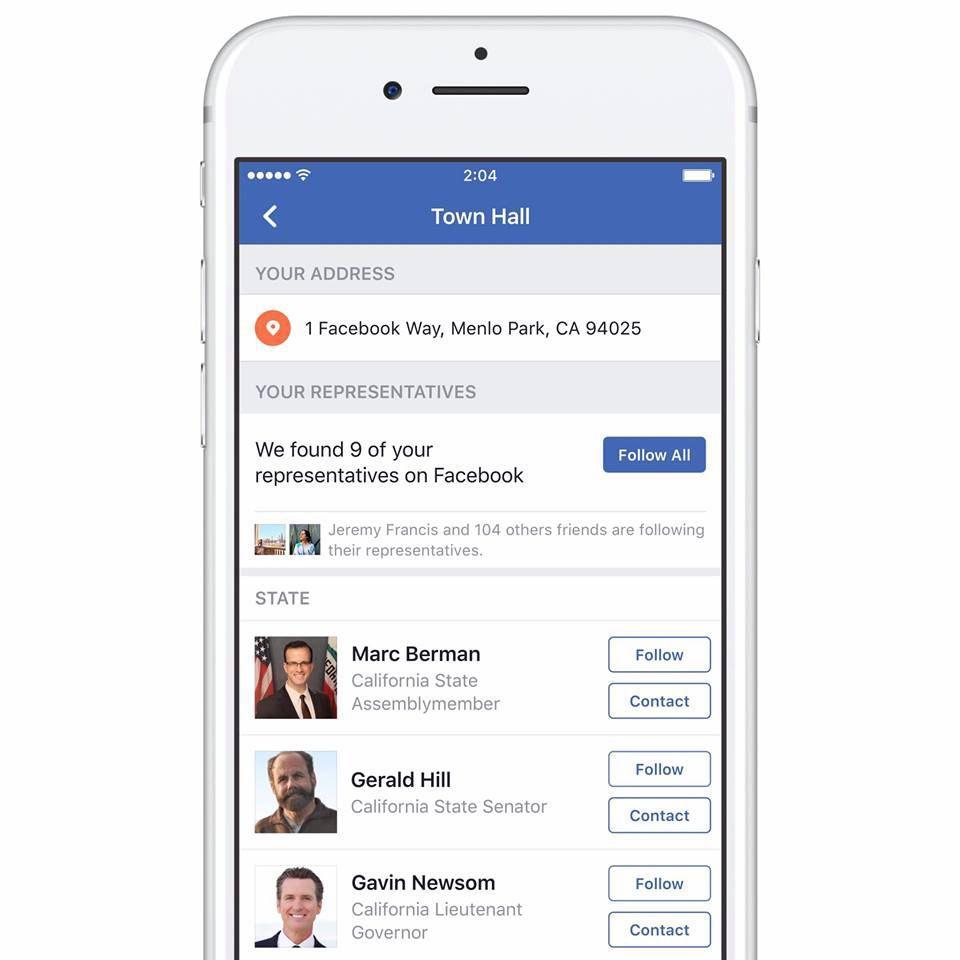hen people think of Facebook and politics, they often think of relatives’ rambling political rants. That could soon change with the announcement of a new site feature offering users a more organized avenue for political activism and engagement.
In late March, Facebook began the U.S. roll out of its new political networking feature, Town Hall. The feature is located under the site’s explore tab and prompts users to input their permanent address to match them to their local, state and federal representatives.
Once the representatives are cued up, the feature offers users the option to follow the officials’ Facebook pages for updates or contact them via direct message, phone call or email. The program also offers day-of reminders for municipal, state and federal elections to encourage increased turnout at the polls.
The launch is one in a number of new features the social media site is rolling out in conjunction with its increased commitment to social responsibility. On Feb. 16, Facebook CEO Mark Zuckerberg released a manifesto on his personal Facebook page detailing his vision for the company and new tools that will promote a safer, more informed and civically-inclined global community.
Zuckerberg announced the Town Hall launch March 27, saying in a post that it’s important people feel more connected to their communities and democracy. Providing basic political knowledge and easy access to representatives through features like Town Hall is the first step in achieving this aim, he said.
“Building a civically-engaged community means building new tools to help people engage in a thoughtful and informed way,” Zuckerberg said. “The more you engage with the political process, the more you can ensure it reflects your values.”
Political science junior and Geaux Vote LSU secretary Louis Gremillion said the new feature could be an important tool for engaging young adults and millennial voters in the political process. The millennial voting block still turns out in lower numbers than its baby boomer counterpart, though both make up roughly 31 percent of the electorate, according to Pew Research Center.
Young voters are deterred when they have to visit a dozen or more websites or subscribe to third-party voting reminder apps to remain politically versed, Gremillion said. Facebook’s new Town Hall feature has streamlined the research process by bringing the information directly to users and made it easier for people to remain politically aware, he said.
It also removes some of the political divisiveness that is turning many off political engagement, he said. Young adults should be aware of the basics, such as who their representatives are and how to contact them, even if they don’t want to delve into the rhetoric of certain political philosophies, Gremillion said.
In the future, Gremillion said he hopes the feature could be a catalyst for increased voter turnout among millennials and younger demographic groups. Similar features could be the key to leveraging the millennial voice.
“There’s an opportunity here for us to become unified and have our voices heard,” he said. “When we recognize those tools that make that task easier, we’re much more likely to achieve that potential.”




